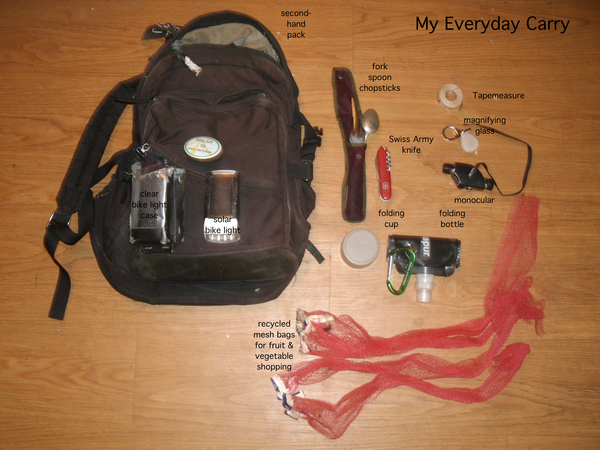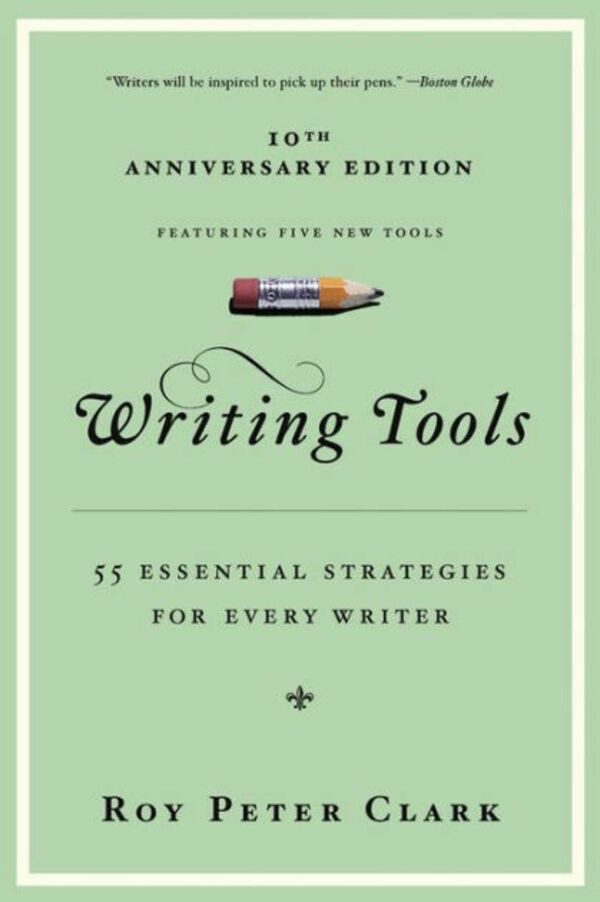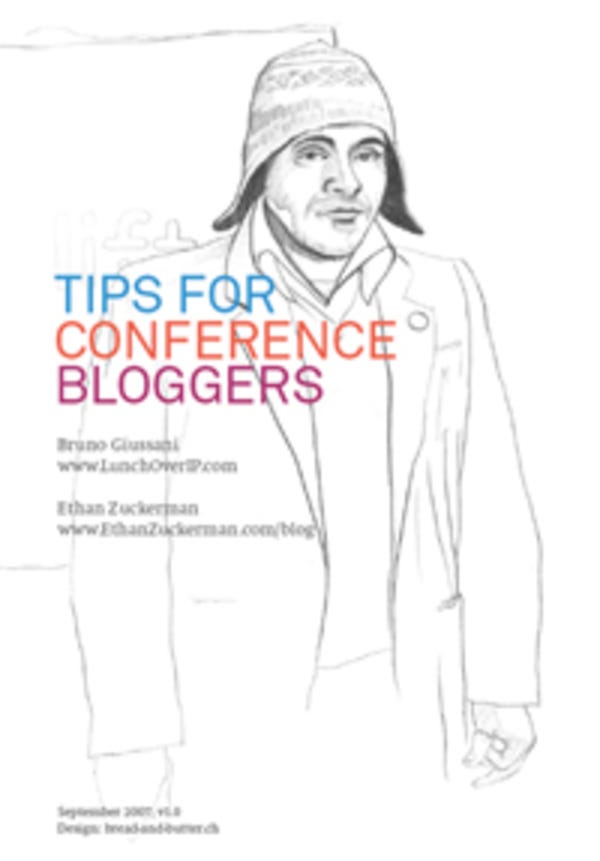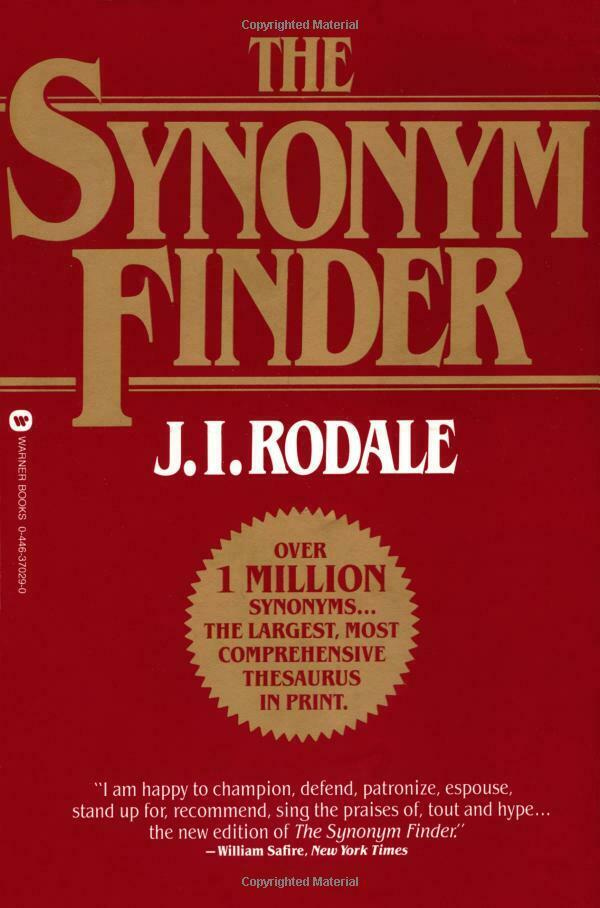What’s in my bag? — George Mokray

What's in my bag? issue #78
Sign up here to get What’s in my bag? a week early in your inbox.
George Mokray is a lifelong independent scholar. For over a decade, he’s published a free weekly listing of Energy (and Other) Events around Cambridge, MA which covered what was happening in the community and among the local colleges and universities. He maintains other free listservs: City Agriculture, Zero Net Energy Buildings, and Geometry Links (on geometric math, science, technology, and art).
About the bag
I bought this second-hand backpack at a Goodwill or Salvation Army store in Providence, RI over a decade ago. It might have cost $10. The zipper sometimes comes undone but I use a half inch staple around the zipper at the top of the bag to keep it from completely popping open. So far, it works for me.
What’s inside the bag
I’ve carried a solar bike light on my backpack for about 20 years now. This one is the second of this model I’ve used. It cost about $10 online three or four years ago. It has a power out so it can be used with other devices and is the core of my idea that Solar IS Civil Defense.
I used recycled mesh bags instead of plastic bags at the grocery store or the farmers’ market. Currently, I find the 5 pounds of grapefruit bags from Trader Joe’s to be very good.
The case for my eating utensils originally included wooden utensils but I lost them and replaced them with fork, spoon, and chopsticks from my kitchen drawer.
I bought this plastic folding cup from an Army/Navy store long ago. When I break it out, people say, “Oh, I remember them from my Scouting days! Didn’t know they still made them.”
The tape measure was a gift from the street, I bought the monocular for a buck or two long, long ago, and the magnifying glass is a useful trinket from some convention or exhibit somewhere.
12/2/20Currently, I am looking at why the US American civil rights movement never studies Gandhian or nonviolent economics and never incorporated swadeshi, local production, “the soul of satyagraha,” into their movements and I am searching for economists who are studying what happens when the cost of fuel goes away in a 100% renewably powered economy. Any leads will be much appreciated. — George









